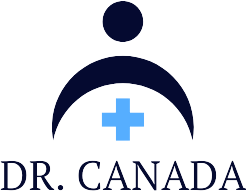Cancer, a disease that affects millions of people worldwide, is not only physically exhausting but also emotionally draining. While the diagnosis and treatment of cancer are critical aspects of the journey, the rehabilitation process that follows is equally important in ensuring a patient’s full recovery. In this comprehensive guide, we will delve into the various aspects of cancer rehabilitation, including understanding the diagnosis and treatment, navigating the challenges faced during the rehabilitation journey, and exploring the causes and strategies for effective rehabilitation. By shedding light on these crucial topics, we aim to provide valuable insights and support for those who have completed cancer treatment and are ready to embark on their journey towards recovery and overall well-being.
1. "Understanding the Diagnosis and Treatment of Cancer: A Comprehensive Guide"
Cancer is a complex and devastating disease that affects millions of individuals worldwide. Understanding the diagnosis and treatment of cancer is crucial for patients and their families to make informed decisions and navigate through the challenging journey of recovery. This comprehensive guide aims to shed light on the various aspects of cancer diagnosis and treatment, providing a valuable resource for those seeking information and support.
The diagnosis of cancer often begins with routine screenings or when individuals present with concerning symptoms. Medical professionals employ various tests and procedures to confirm the presence of cancer cells, such as biopsies, imaging scans, and blood tests. Once a diagnosis is made, the healthcare team will determine the stage and type of cancer, which is essential for developing an appropriate treatment plan.
Treatment for cancer can encompass a combination of therapies, tailored to each patient’s specific needs. The primary treatment options include surgery, chemotherapy, radiation therapy, targeted therapy, immunotherapy, and hormone therapy. Depending on the type and stage of cancer, one or more of these treatments may be recommended. It is vital for patients to have a clear understanding of the potential benefits, risks, and side effects associated with each treatment option.
While the primary goal of cancer treatment is to eradicate or control the disease, it is essential to recognize that the process can cause physical, emotional, and psychological challenges. Symptoms of cancer and its treatment can vary widely and may include fatigue, pain, nausea, hair loss, changes in appetite, and mood swings. Moreover, cancer treatment can also impact individuals’ overall well-being, affecting their ability to perform daily activities and maintain a good quality of life.
Understanding the causes of cancer is another important aspect of the diagnosis and treatment journey. Cancer can arise from a combination of genetic factors, environmental exposures, and lifestyle choices. Genetic mutations, inherited or acquired, play a significant role in the development of cancer. Additionally, exposure to certain chemicals, radiation, tobacco smoke, and unhealthy habits like poor diet and sedentary lifestyle can increase the risk of developing cancer.
In conclusion, comprehending the diagnosis and treatment of cancer is crucial
2. "Navigating the Journey of Rehabilitation: Overcoming Symptoms and Challenges"
Receiving a cancer diagnosis can be a life-altering event, not only physically but also emotionally and mentally. The journey through cancer treatment is often challenging, with various symptoms and side effects that can impact a person’s daily life. However, with the right rehabilitation strategies and support, individuals can overcome these obstacles and regain control over their lives.
One of the most crucial aspects of rehabilitation after cancer treatment is understanding the symptoms and challenges that may arise. Cancer treatment can cause a range of physical and emotional symptoms, such as fatigue, pain, nausea, anxiety, depression, and cognitive difficulties. These symptoms can persist even after the treatment has ended, making it essential for individuals to navigate their path to recovery effectively.
Fatigue is a common symptom experienced by cancer survivors, often lasting for months or even years after treatment. It can greatly impact a person’s ability to carry out daily activities and can be challenging to manage. However, through various rehabilitation techniques, such as exercise programs tailored to individual needs and energy conservation strategies, individuals can gradually regain their strength and energy levels.
Pain management is another significant aspect of rehabilitation after cancer treatment. Cancer-related pain can be caused by the disease itself or as a side effect of treatment. It can be acute or chronic, impacting a person’s mobility and overall quality of life. Rehabilitation focuses on implementing a comprehensive pain management plan, which may include medications, physical therapy, and alternative therapies like acupuncture or massage.
Emotional well-being is equally important during the rehabilitation journey. Many cancer survivors experience anxiety, depression, and fear of recurrence, which can hinder their recovery process. Counseling, support groups, and mindfulness techniques are often employed to address these emotional challenges, helping individuals develop effective coping strategies and regain a sense of control over their lives.
Cognitive difficulties, sometimes referred to as "chemo brain," can also be a significant hurdle for cancer survivors. These difficulties include problems with memory, attention, and concentration, impacting daily activities and work performance. Cognitive rehabilitation programs, such as memory exercises, problem-solving strategies, and occupational therapy, can
3. "Unveiling the Causes and Effective Strategies for Cancer Rehabilitation"
Cancer rehabilitation is a vital aspect of the overall treatment process, focusing on restoring physical, emotional, and psychological well-being for individuals who have undergone cancer treatment. To effectively implement rehabilitation programs, it is crucial to understand the causes of cancer and develop strategies that address the unique challenges faced by cancer survivors.
The causes of cancer are multifactorial, involving a complex interplay of genetic, environmental, and lifestyle factors. Genetic mutations can predispose individuals to certain types of cancer, while environmental factors such as exposure to carcinogens or radiation can increase the risk. Lifestyle choices, including tobacco and alcohol use, poor diet, lack of physical activity, and excessive exposure to the sun, also contribute to the development of cancer.
To ensure successful cancer rehabilitation, a comprehensive approach that targets both physical and psychosocial aspects is necessary. Physical rehabilitation focuses on restoring functional abilities and managing physical symptoms that may arise during cancer treatment, such as fatigue, pain, weakness, and lymphedema. This can involve a range of interventions, including exercise programs, physical therapy, occupational therapy, and pain management techniques.
Psychosocial rehabilitation is equally important, as cancer diagnosis and treatment can significantly impact an individual’s emotional well-being. Common psychological symptoms experienced by cancer survivors include anxiety, depression, fear of recurrence, body image issues, and social isolation. Counseling, support groups, and other psychosocial interventions can help individuals cope with these challenges, improve their quality of life, and enhance their overall emotional well-being.
In addition to addressing physical and psychosocial needs, cancer rehabilitation should also focus on promoting lifestyle modifications to reduce the risk of cancer recurrence and improve long-term health outcomes. This may involve providing education on healthy diet and nutrition, smoking cessation programs, stress management techniques, and strategies for incorporating regular exercise into daily routines.
Collaboration between healthcare professionals, including oncologists, rehabilitation specialists, psychologists, and nutritionists, is essential for developing and implementing effective cancer rehabilitation programs. These programs should be tailored to the individual needs of each cancer survivor, taking into account their specific diagnosis




